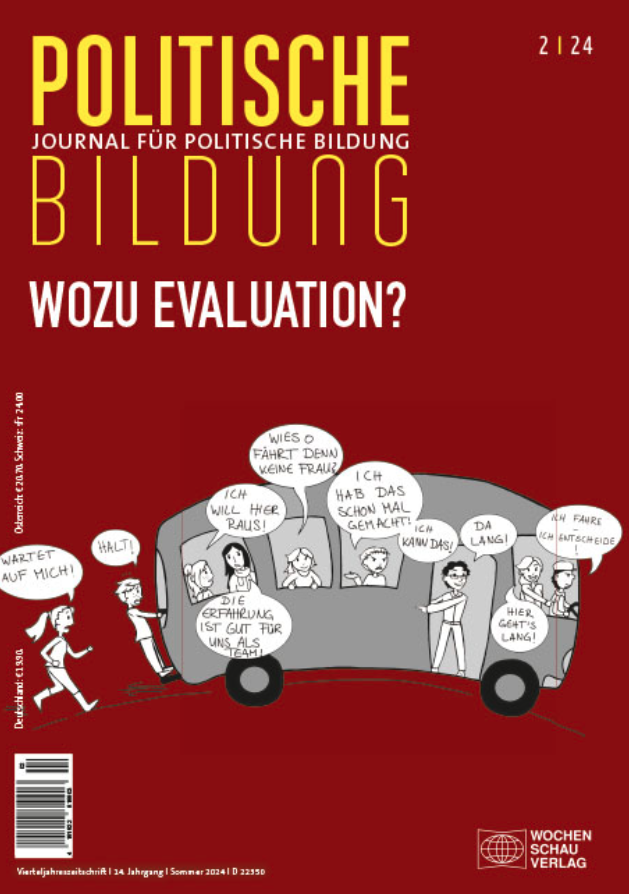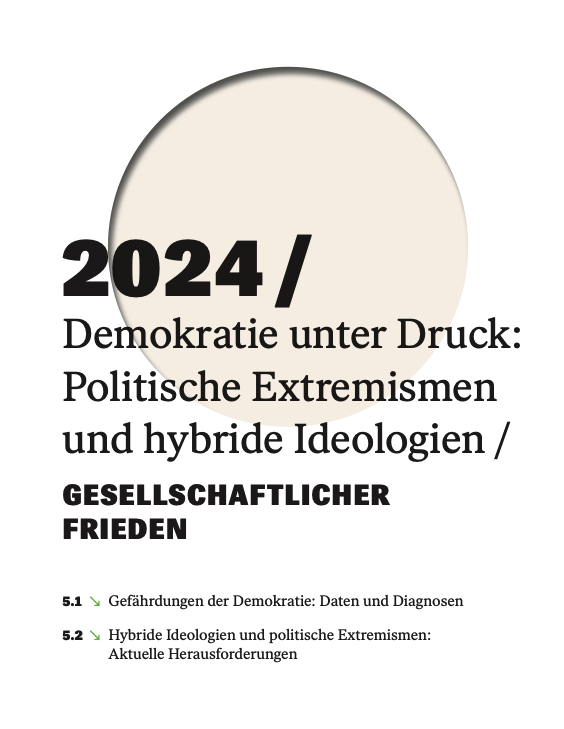Other Authors
Susanne Johansson.
Description
The term evaluation comes from the French (évaluer) and means to determine, evaluate, and judge. The questions of what evaluation and evaluation practice mean in the context of political education, for whom and from whose perspective, and how it is practiced, reveal a broad spectrum of possibilities for reflection and discussion, all of which are also gathered under the title of this issue, “Why Evaluation?”
The term “impact” is the most frequently encountered term in the issue, with more than 25 hits. While it is understandable that this term is associated with particular expectations, not only in political education, it does not, however, leave the field without a mandate to address its significance for practice and research, given the current political upswing and anticipated austerity measures.
Limiting evaluation to impact alone is too narrow for the diversity of political education, as the focus articles at the beginning of the issue make clear. How evaluation can be classified and critically examined in political education can be seen here. This is followed by practical contributions that demonstrate how evaluations are used operationally in the various fields of political education and what potential and challenges they encounter.
The issue makes it clear that, despite its recent surge in popularity thanks to federal programs such as the “PreVal” research and transfer project, evaluation has always been a central topic in the field, and for good reasons, given the perspectives of its target audience.
Full Citation:
Johansson, S., & Junk, J. (2024). Möglichkeiten, Spannungsfelder und Herausforderungen von Evaluation im Handlungs- und Forschungsfeld politische Bildung: Zwischenbilanz aus dem Projekt „PrEval“. Journal für politische Bildung, (2).
View Publication







